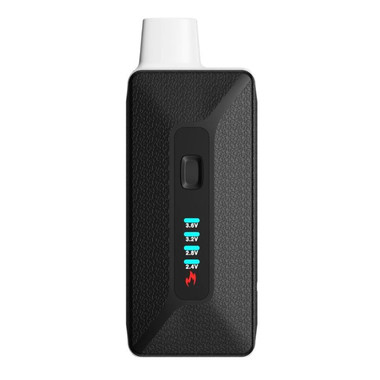The Challenges Posed by the Pact Act for Vape Shops | VapeRanger
Estimated 0 min read
If you’re in the vape industry, then I’m sure you have heard of the PACT Act. The PACT Act for vape shops will turn the industry upside down and is sure to leave many vape companies behind unless they act quickly and comply with the new vape regulations and shipping restrictions. Today’s blog goes over the PACT Act’s repercussions and how VapeRanger plans to tackle this challenge head-on.
Table of Contents
- Recent Developments
- Things To Take Into Consideration if You are a Vape Retailer
- What Does This Mean for the Vape Industry?
- How VR is tackling the PACT ACT
- Conclusion
Recent developments
In December of last year, the Trump administration signed into law the Preventing Online Sales of E-Cigarettes to Children Act, which is better known in the community as the “mail vape ban.” This law did two things.
First, it ordered the United States Postal Service to create regulations that will effectively prohibit the shipment of vaping products (This will be effective as of April 27, 2021). And second, it inserted vaping products into the Prevent All Cigarette Trafficking (PACT) Act, also known as the Jenkins Act.
The Preventing Online Sales of E-Cigarettes to Children Act is extensive and covers almost every kind of vaping product, including oil-based substances. To be even more specific, the act includes:
- Oil vaping devices
- E-liquid vaping devices
- Nicotine e-liquids
- Nicotine free e-liquids
- CBD
- Delta-8 THC liquids & oils
Every part, component, or accessory used with the items above.
FedEx and UPS Will Stop Shipping Vaping Products
To make matters even more challenging, two of the largest private carriers in the country will also stop delivering vaping products to residences and businesses. FedEx will stop shipping vaping products on March 1, 2021, and UPS on April 5, 2021.
Things To Take Into Consideration if You are a Vape Retailer
If you are a vape seller, there are some things you need to take into consideration. First, the Prevent All Cigarette Trafficking (PACT) Act requires that all sellers register with the Bureau of Alcohol, Tobacco, Firearms, and Explosives (ATF) and the tax administrators of each state they plan on doing business with.
Secondly, the PACT Act requires the collection of state and local taxes by vape sellers. These exacting standards state that private carriers must meet to deliver tobacco products (now vaping products) for residential and business customers. They also demand strict record-keeping of tax collection and payments that vape sellers must report to states and the federal government.
Besides the description above, vape sellers must also comply with the following rules:
- Verify the age of the consumers using a public database
- Use private carriers that need to collect adult signatures upon delivery.
- Must register with the Bureau of Alcohol, Tobacco, Firearms, and Explosives (ATF) and U.S. Attorney General
- Register with the business location with the state and local tax administrators.
- Pay and maintain records of all taxes paid for each state and use required tax stamps and additional labeling for every product sold.
- Every month a list of transactions will need to be sent to each state’s tax administrator that includes the following: names and addresses of customers, quantities of products sold, and the name, address, and phone number of the person delivering the shipment to the recipient.
To make matters more complicated, the ATF has severe penalties that include expensive fines and even severe criminal penalties. The PACT Act also requires that the ATF maintains a non-compliant list of persons who fail to comply with the act, which the ATF distributes to carriers and even credit card companies to help them enforce the PACT Act.
What This Means for the Vape Industry?
This is just another challenge that the vape industry must overcome. While it is true that the U.S. Postal service and the largest carriers in the country will stop shipping vaping products, everyone in the industry is working hard to create a solution that will deal with this problem.
While most online retailers already use third-party age verification systems, some of the PACT imposes' regulations that will be complicated to meet. For example, the state-to-state guidelines are challenging to complete if vape sellers don't have a dedicated staff that can oversee the whole process. That, along with the heavy fines, will mean the end for many vape businesses, at least for small retailers that don't have the means to comply.
Gregory Conley, President of the American Vaping Association, in a statement, said that "If the increase in shipping costs wasn't enough, the bill also imposes huge paperwork burdens on small retailers and backs it up with threats of imprisonment for even innocent mistakes," he said. "This is not a law designed to regulate the mail-order sale of vaping products to adults. It's an attempt to eliminate it."
How VR is tackling the PACT ACT
We here at VapeRanger have decided to go forward and comply with all the regulations needed. For now, we will continue using USPS until April 27, 2021 date where we will switch to a private vape carrier to deliver our products to all our customers. We want to let you know that we have been working hard behind the scenes, which does not affect you and your clientele.
We would also like to inform our clients that if they are unable to meet the PACT Act requirements, we are willing to provide counsel and real solutions to the PACT Act's challenge. We ask that you contact us at your earliest convenience, and we will be able to provide you with some of the solutions we plan to use ourselves.
Conclusion
The PACT Act poses a genuine challenge for the industry, but we believe the community will rise to the occasion like it always has and create solutions to the PACT Act's challenges.







